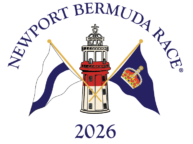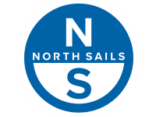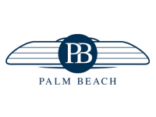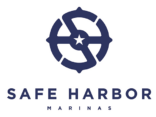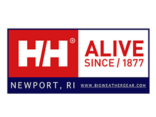E-Steward Resources
Collaborate with us!
All Bermuda Race entrants are encouraged to name an environmental steward as part of your race crew. We urge you to contact your skipper, discuss a sustainability plan and make sure the entry management system reflects your role as "e-steward" under optional crew positions. Thank you for helping in making the Newport Bermuda Race a Clean Regatta!
Questions ? Contact [email protected]
| Name | Boat/ Organization | File Upload | Link to Doc | Optional Note | Date Created |
|---|---|---|---|---|---|
| Anne DiMonti | Audubon Society of Rhode Island/See a Spout: Watch Out/Sharing the Seas: Safe Boating for Sailors and Whales | Whale-Interaction-Resources-for-2024-Newport-Bermuda-Race.pdf | vimeo.com | Did you know that collisions with boats is one of the leading causes of whale mortality? In addition, these collisions can cost thousands of dollars in damages to vessels and injure crew. The Newport Bermuda Race course transits the spring migratory path of many species of whales, such as the endangered North Atlantic right whale. These animals travel from their winter calving grounds in the south along the East Coast of the US to their northern summer feeding grounds in New England and Canada. Whales can be extremely difficult to see from the deck of a vessel. The video and resources information provided will assist you and your crew in safely transiting Race areas where whales may be present. | May 31, 2024 |
| Drew Plominiski | Artemisia | Artemisia-Projects-Environmental.pdf | The risk analysis (see uploaded document) is a brainstorm to capture potential hazards to the environment that a 40' racer/cruiser could potentially have in the context of an offshore race. The hazards are graded 1-5 for how often we might expect them to occur ("almost never" to "very likely") and graded according to the severity of the risk, if it happens-- 1 to 5 (from "minimal impact" to "catastrophic".) Obviously, leaking 5 or 10 gallons of diesel into the water isn't going to be an actual environmental catastrophe, but I graded this "high severity", as it's one of the worst things I could imagine happening while sailing in a place like Bermuda. Then, multiplying the occurrence with the severity gives a score with 25 being the highest risk score. The higher the risk score, the more important it is to do something to reduce that risk. Listed are 3 mitigations that could be put in place to reduce the likelihood or impact of the incident happening and then make a few notes for what/why/how to implement some or all of those mitigation strategies. Most of the mitigations were easy, inexpensive, and only required a little time and foresight to put into effect. Many of those will be effective in preventing the incident in the first place. Not everything can be prevented, so some of the mitigations are reactionary, but having a plan and tools to address specific issues is a good start if the issue can't be fully mitigated. | June 12, 2024 | |
| Drew Plominski | Artemisia | Artemisia-Environmental-risk-analysis.pdf | We did a risk review and analysis of potential environmental hazards based on our previous race experience, scored the risks based on severity and likelihood to occur, and then came up with some mitigation strategies which will be employed during our race or have been executed during race prep. This is pretty basic in my opinion, but could be a good framework for future efforts. This style of risk analysis and mitigation (see attached PDF) is based on an ISO standard framework I use in my professional duties for design and safety risk reviews. | June 8, 2022 | |
| Luke Babcock | ACE | wattandsea.com | We've deployed a Watt-and-Sea hydrogenator to keep vessel batteries topped up. Can mount on port or starboard side transom mounts, tilts up (like a dinghy outboard), and tethers to the lifelines (so it won't fall in while moving!). The drag at moderate speed aren't material, and whatever we lose we will gain by carrying less fuel. We've tested thoroughly and are confident it can keep up with all of our shipboard energy needs. | June 2, 2022 | |
| Spencer Meyer | Abigail | impactful.ninja | P 2 of 2 This link provides some of the best options for purchasing flight and travel carbon offsets. | June 10, 2022 | |
| Spencer Meyer | Abigail |  | patch.io | P 1 of 2 We are racing with (6) and are thinking about our shoreside impacts, especially travel to and from the race. Age-old ideas like car-pooling are cool again! We're renting a van so our crew (6) can dramatically reduce our transportation carbon emissions. For those flying home (like myself), purchasing a carbon offset is an option. The link attached gives a great overview of carbon offsets - what they are and why they are good. The Green Team editor adds that there is something noble about Abigail, Jesse Terry's beloved 1956 Alden ketch (pic attached), storing carbon in the ribs, hull, deck and spars. | June 10, 2022 |
| Damian Foxall | 11th Hour Racing | Hi to the Greenteam & Race organisers We would like to know: Please let me know if you need any support with this important topic? [email protected] | June 12, 2022 | ||
| Name | Boat/ Organization | File Upload | Link to Doc | Optional Note | Date Created |
